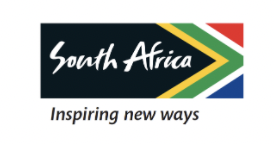

The COVID-19 pandemic and measures (see: SA’s COVID-19 Response) to contain its spread have severely disrupted economic activity across the world. Constrained by lockdown restrictions on personal mobility and business operations, spending and production levels around the globe plummeted in the first half of 2020.
- International trade in goods and services was severely disrupted, impacting adversely on global supply chains and production activity. Restrictions on international travel have had a devastating impact on world tourism and the air transportation industry.
- The world economy has been plunged into the deepest peace-time recession since the Great Depression of the 1930s, with massive employment losses, increased poverty and inequality.
- Most segments of the South African economy were in complete shutdown under alert level 5 (27 March to 30 April 2020) and alert level 4 (1 to 31 May 2020). The restrictions imposed unprecedented demand- and supply-side shocks on the economy, having had a major bearing on spending, production, exports, investment activity and employment.
- South Africa’s real gross domestic product declined by 16.4%, on a quarter-on-quarter basis, in the second quarter of 2020, broadly comparable to the performance of several of its emerging market peers. With the exception of agriculture, all broad sectors of the economy recorded sharply lower output.
- In a highly adverse economic environment characterised by extraordinary levels of uncertainty, many of the fixed investment plans of private enterprises were either postponed or re-evaluated. Nevertheless, considerable inflows of foreign direct investment were recorded in the first two quarters of 2020.
- The COVID-19 pandemic is currently under control in South Africa and mortality rates are quite low. Governments across the world introduced massive support packages, including monetary and fiscal support measures, to soften the impact of the crisis and support the economic recovery. Collectively, such packages totalled USD11.7 trillion, equivalent to 12% of world GDP, according to International Monetary Fund (IMF) estimates.
- South Africa’s COVID-19 response includes an unprecedented fiscal relief package totalled approximately ZAR500 billion. Representing almost 10% of GDP, it was among the highest in the developing world.
- Pressure to alleviate socioeconomic challenges and enhance healthcare services, accompanied by a large shortfall in tax revenue due to much weaker levels of economic activity, resulted in a worsening of state finances. The main budget deficit is projected to widen to 14.6% of GDP in the current fiscal year and gross government debt to be equivalent to 81.8% of GDP.
- The South African Reserve Bank (SARB) acted speedily and aggressively, having lowered the repurchase (repo) rate by a cumulative 275 basis points since end-January 2020 to provide relief to households and business enterprises. At 3.50% presently, the policy rate is at its lowest in almost 50 years. The SARB also purchased government bonds in the secondary market to inject liquidity into the financial system and ensure its efficient functioning.



